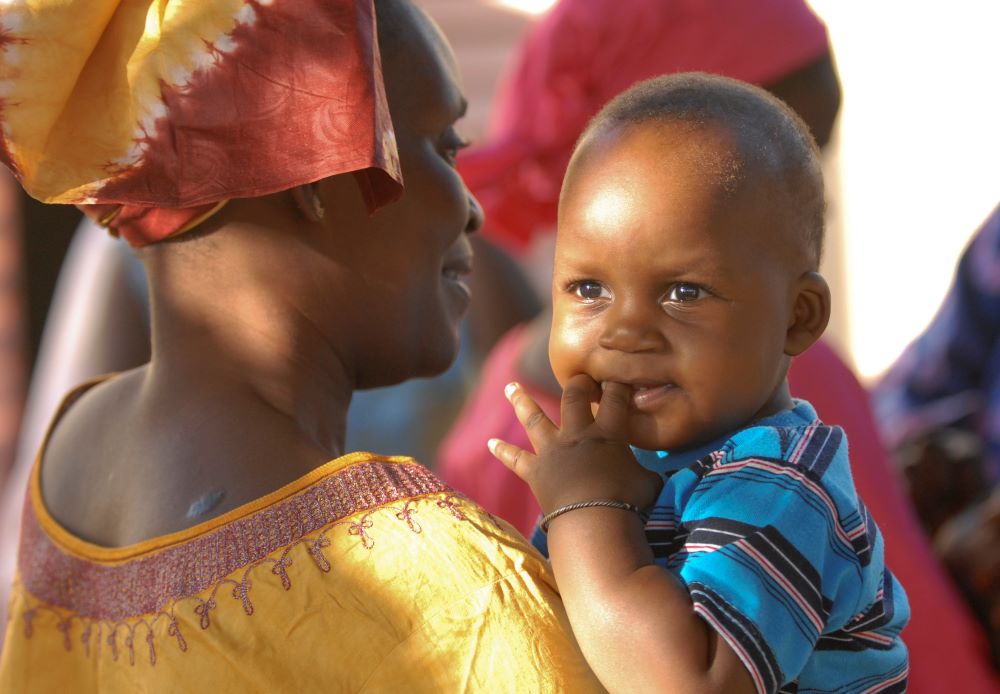Field Stories
Ten inspiring global nutrition stories
December 17, 2024
Seynabou Ndiaye, a child survival champion in rural Senegal, leads the way in vitamin A
At the Touba Mbella health post in rural Senegal, Seynabou Ndiaye works diligently so every child in her village has the chance to grow up strong and healthy. Knowing that vitamin A supplementation is an important part of that, Seynabou has found creative solutions to ensure no child in her community misses out on their bi-annual doses.
Posted on March 21, 2019

Touba Mbella, SENEGAL – At the Touba Mbella health post in rural Senegal, Seynabou Ndiaye works diligently so every child in her village has the chance to grow up strong and healthy. Knowing that vitamin A supplementation (VAS) is an important part of that, Seynabou has found creative solutions to ensure no child in her community misses out on their bi-annual doses.
Reaching every child twice a year with a dose of vitamin A through the routine health system is challenging to Seynabou and other health workers in the country. Vitamin A is a critical micronutrient for children under five, boosting their immune systems, preventing blindness and increasing their chances of survival. The National Health Development Program has made vitamin A supplementation a child health priority and has been delivering it since the 1990s, originally through a door-to-door campaign that achieved near-universal coverage and then through twice-yearly child survival days, when parents brought their children to health centres to receive a package of interventions. The cost of those campaigns, however, was difficult for the government to maintain and donor dependency was a challenge.


In 2013, in an effort to make the VAS program more cost-effective and sustainable, the Ministry of Health and Social Action, with support from Nutrition International, gradually began reintroducing VAS into the routine health system. However, it meant health workers had to take on a much larger role in ensuring children continued to receive the supplements, and it became difficult to achieve the same level of coverage, especially among children aged 12 to 59 months.
Children must receive a dose of vitamin A every four to six months until the age of five, yet with no designated day for parents to take them to a health centre or health post, the number of children receiving the requisite number of supplements declined. Delivering VAS through the routine health system involves ensuring that every time an eligible child comes into contact with the health system for routine services like immunization, growth monitoring, or even nutritional screening the health worker must check to see if the child is due for their next dose and be equipped to give it to the child.
As the head nurse in the Touba Mbella health post, Seynabou knew she needed to find a way to ensure the children in her community were not missing a dose.
Already some routine health services are extended into the community by community health workers, so Seynabou encouraged those under her supervision to add VAS to their services when visiting households. Once a month she meets with her community health workers to collect information on children who received vitamin A, whose vaccination cards were checked, and who were checked on other health indicators. These are recorded in specialized registers, helping to ensure that no child is missed. The same data is then used to plan for who needs to be reached with what service next month.
With this exceptional attention to detail and engagement of the community health workers in her district, Seynabou has achieved near-universal coverage within the catchment of her health post, with 98 percent of children receiving their doses. This is in stark contrast, however, with the average coverage achieved across the department of Birkelane where Touba Mbella sits, where only 32 percent of eligible children receive their age-appropriate doses each year.
Seynabou’s success is being held up as a model for other health workers in the country. The Direction de la Santé de la Mère et de l’Enfant, or the Mother and Child Health Directorate, has shared her work with other districts, hoping to achieve the same level of vitamin A coverage success throughout Senegal.
Since 1997, with support from the Government of Canada, Nutrition International has delivered more than 10 billion capsules of live-saving vitamin A to hundreds of millions of children in 55 countries. Nutrition International also works closely with other development partners and governments to support ministries of health to deliver VAS programs.